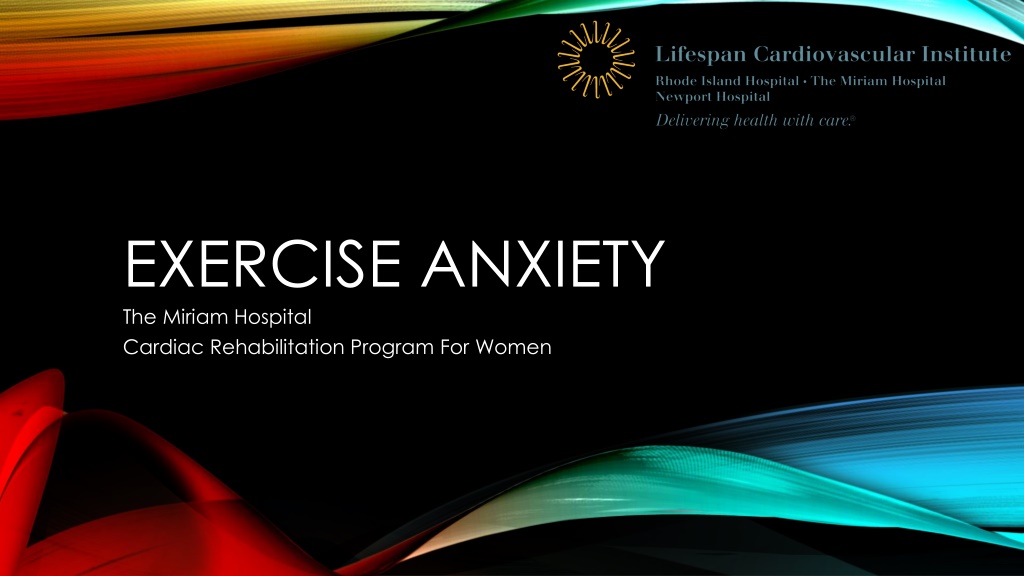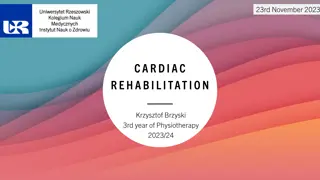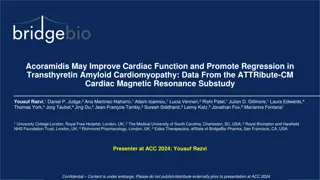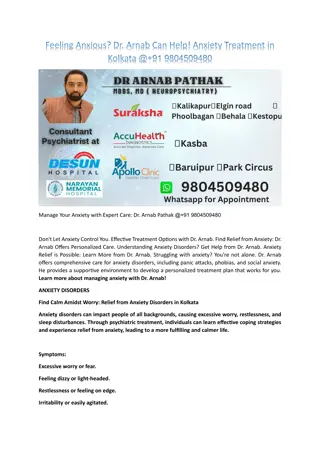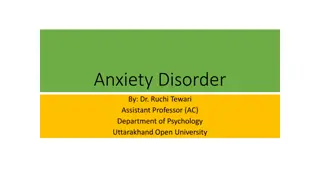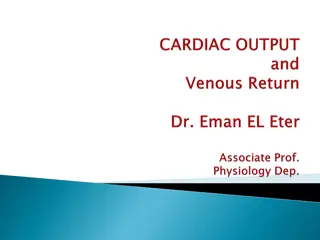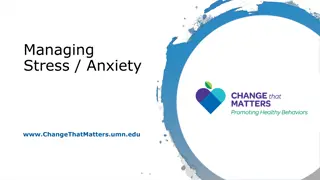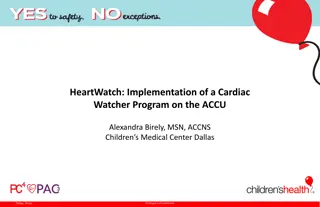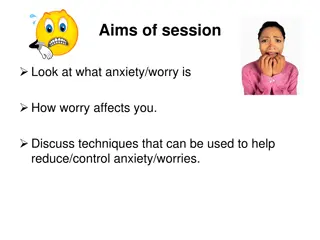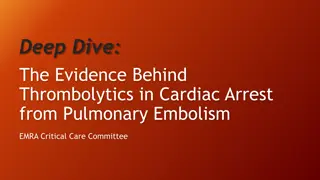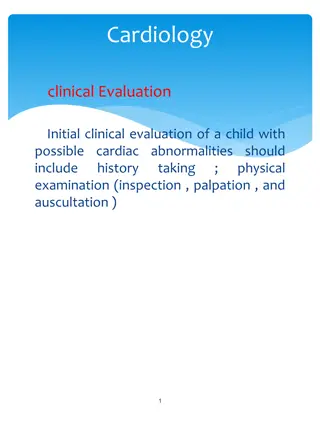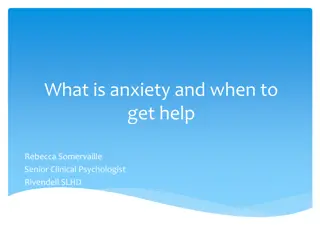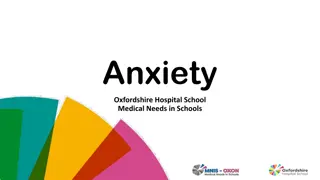Understanding Anxiety and Self-Efficacy in Cardiac Rehabilitation Programs
Explore the relationship between anxiety, self-efficacy, and exercise adherence in women participating in cardiac rehabilitation programs. Discover how addressing anxious thoughts and building exercise confidence can improve overall cardiac health outcomes.
Download Presentation

Please find below an Image/Link to download the presentation.
The content on the website is provided AS IS for your information and personal use only. It may not be sold, licensed, or shared on other websites without obtaining consent from the author. Download presentation by click this link. If you encounter any issues during the download, it is possible that the publisher has removed the file from their server.
E N D
Presentation Transcript
EXERCISE ANXIETY The Miriam Hospital Cardiac Rehabilitation Program For Women
IMPORTANCE OF EXERCISE EXERCISE = KEY COMPONENT OF CARDIAC REHAB
ANXIOUS THOUGHTS MAY INTERFERE WITH EXERCISE I WILL HAVE A HEART ATTACK IF I EXERCISE I MAY NOT BE ABLE TO BREATHE WHILE I AM EXERCISING IT IS UNSAFE FOR ME TO EXERCISE OUTSIDE OF REHAB
ANXIETY AND EXERCISE AVOIDANCE ANXIETY CAN DECREASE SELF-EFFICACY ANXIETY CAN TRIGGER AVOIDANCE OF EXERCISE
SELF-EFFICACY SELF EFFICACY = CONFIDENCE in one s ability to successfully perform activities in challenging situations
IMPORTANCE OF SELF-EFFICACY Why is Self-Efficacy for Exercise important in Cardiac Rehab? SELF EFFICACY predicts EXERCISE ADHERENCE
GENDER DIFFERENCES IN SELF-EFFICACY Male Cardiac Rehab patients may have significantly greater Self-Efficacy for overcoming fear of having a cardiac event than female counterparts Men may be more likely to adhere to exercise than women during Cardiac Rehab
BUILDING EXERCISE CONFIDENCE IN WOMEN Cardiac Rehab programs need to help women to increase confidence in their ability to overcome barriers to exercise
HOW TO INCREASE EXERCISE CONFIDENCE Address concerns with your Cardiologist and Case Manager Learn how to distinguish and manage cardiac and non cardiac symptoms
HOW TO INCREASE EXERCISE CONFIDENCE Implement Action Plan to manage symptoms as directed by your Cardiologist and Cardiac Rehab staff Keep up the good work! Continue to exercise at Rehab!!
HOW TO INCREASE SELF-EFFICACY AROUND EXERCISE Engage in home exercise program as directed by medical team Utilize positive self talk: e.g., I have already spoken with my doctor about my symptoms and I know what to do Write down any thoughts and physical sensations that you had that prevented you from exercising and discuss with Cardiac Rehab team (Case Manager, Psychologist)
ANXIETY MAY VARY DEPENDING ON CARDIAC DIAGNOSIS/PROCEDURE STENT PLACEMENT ACUTE CORONARY SYNDROME ICD VALVE REPAIR SCAD HEART FAILURE VAD HEART TRANSPLANT
MANAGE ANXIETY TO TAKE CARE OF YOURSELF
